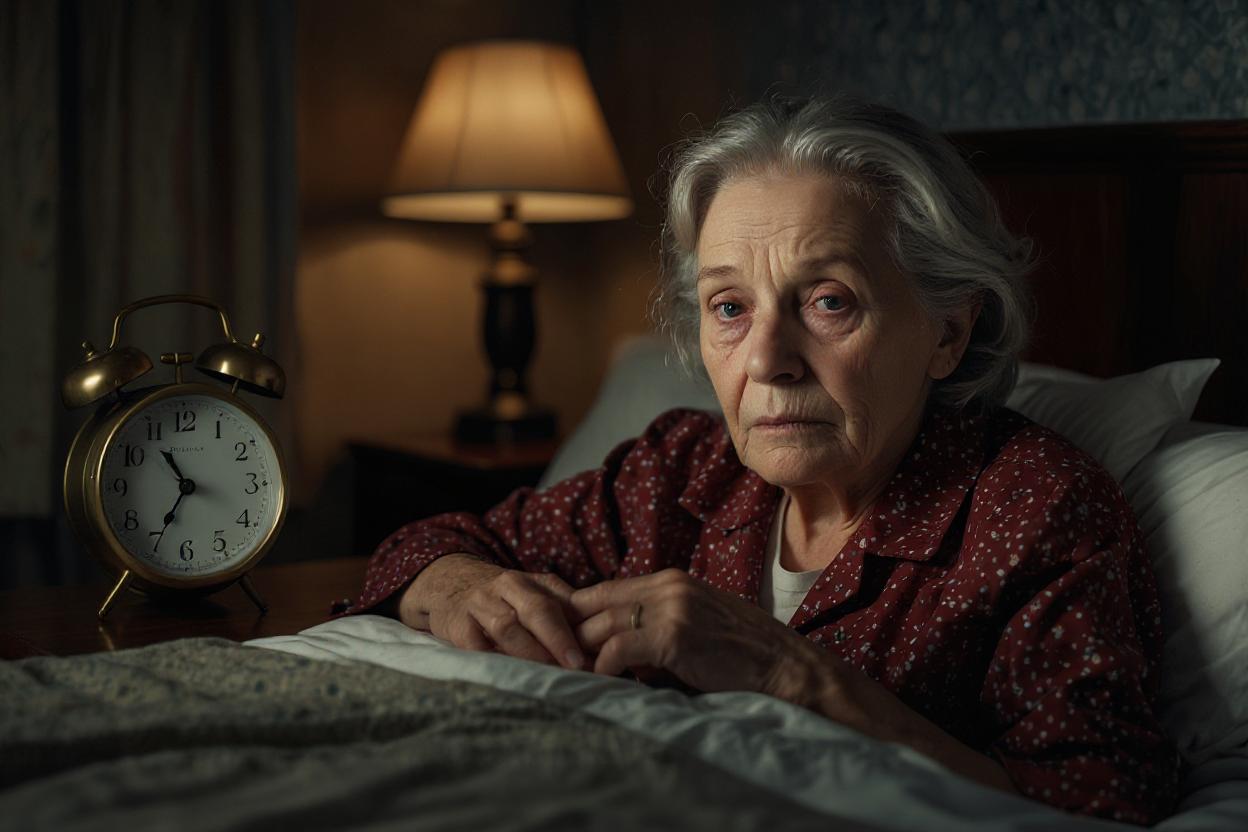If you’re an older adult struggling with sleepless nights, you’re not alone. Many seniors experience sleep problems, from tossing and turning at 2 AM to waking up too early. This kind of senior insomnia can be frustrating and draining. But take heart: insomnia in later life is common, and it is treatable. With some understanding and gentle changes, you can find relief and start sleeping better as you age. In this post, we’ll explore why insomnia happens and what you can do about it.
What Is Insomnia?
Insomnia means having trouble falling asleep, staying asleep, or waking up too early and not being able to get back to sleep. It’s more than the occasional restless night. Insomnia is a chronic pattern of poor sleep that can leave you feeling tired, irritable, or foggy during the day.
According to the National Institute on Aging, insomnia is the most common sleep problem in adults over 60. The Sleep Foundation estimates that up to 50% of older adults report symptoms. The good news is that sleep problems in later life are often manageable with small changes and support.
Why Is Insomnia More Common in Older Adults?
1. Natural Changes in Sleep Patterns
As we age, our internal sleep-wake cycles tend to shift earlier. You might feel sleepy in the early evening and wake up before dawn. At the same time, older adults spend less time in deep sleep and more time in lighter stages, making it easier to wake up during the night. These changes are part of normal aging, but they can lead to chronic insomnia after 60.
2. Health Conditions and Chronic Pain
Arthritis, back pain, diabetes, heart issues, and other age-related conditions can interfere with restful sleep. Pain or discomfort at night is a major reason many seniors wake frequently or struggle to fall asleep. The experts at Johns Hopkins Medicine note that managing underlying health problems is key to improving sleep.
3. Medications
Some prescriptions, including beta blockers, corticosteroids, and diuretics, can disrupt sleep. Diuretics, for instance, may increase nighttime trips to the bathroom. If you’ve started a new medication and noticed changes in your sleep, talk with your doctor. The Mayo Clinic recommends reviewing medications regularly to identify sleep-related side effects.
4. Stress, Anxiety, and Depression
Later life often brings emotional stress; from health concerns to changes in independence or the loss of a loved one. These feelings can fuel worry and keep the mind busy at night. Anxiety and depression are both common in older adults and are strongly linked to sleep problems in later life.
5. Daytime Habits and Environment
Less physical activity, irregular schedules, too much screen time, or long naps during the day can all make it harder to fall asleep at night. Your bedroom setup also matters. If your room is too warm, bright, noisy, or uncomfortable, it could be affecting your ability to stay asleep.
How to Sleep Better as You Age
Thankfully, senior insomnia isn’t something you have to live with. Here are gentle, research-backed strategies to help improve your sleep naturally:
Stick to a Regular Sleep Schedule
Going to bed and waking up at the same time every day, even on weekends, helps your body maintain a steady rhythm. Avoid oversleeping in the morning or taking long naps in the late afternoon, which can throw off your internal clock.
Create a Calming Bedtime Routine
Ease into sleep with quiet, relaxing activities: gentle stretching, warm baths, soft music, or herbal tea like chamomile or lemon balm. These rituals tell your body it’s time to rest. Dim the lights and avoid screens. The blue light from phones or tablets can make it harder to fall asleep.
Optimize Your Sleep Environment
Keep your bedroom cool, dark, and quiet. Use blackout curtains, a fan, or a white noise machine to reduce disruptions. Consider investing in cooling bedding, a supportive mattress, or a body pillow if you deal with pain or hot flashes.
Watch What You Eat and Drink
Limit caffeine after 2 p.m. and avoid alcohol before bed. Both can disrupt your sleep cycle. Avoid heavy meals late in the evening. If you’re hungry, a light snack like yogurt or a banana can help without causing discomfort.
Get Natural Light and Gentle Exercise
Exposure to morning sunlight helps regulate your body’s sleep-wake cycle. A daily walk or light stretching can improve both sleep and mood. Just try to finish exercise at least a few hours before bedtime.
Manage Stress and Worry
Mindfulness, breathing exercises, or simply journaling your thoughts before bed can help calm your mind. Set aside a few minutes during the day to process worries, so they don’t follow you into bed. Even a brief relaxation session can reduce bedtime anxiety.
Rethink Naps
While a short nap can be refreshing, try to limit naps to 20–30 minutes and avoid napping after 3 p.m. Long naps may make it harder to fall asleep at night.
When to Consider Natural Aids
If habits alone aren’t helping, you might explore natural options like melatonin supplements, lavender oil, or a weighted blanket. Talk with your doctor before starting anything new, especially if you’re taking other medications.
When to Talk to a Doctor
If you’ve tried making changes and still struggle to sleep, it’s time to check in with your doctor. Insomnia may be linked to a medical issue or sleep disorder like apnea or restless legs syndrome. Many of these are treatable with the right approach.
One of the most effective, drug-free options is Cognitive Behavioral Therapy for Insomnia (CBT-I), which focuses on changing thoughts and habits around sleep. Both the Sleep Foundation and National Institute on Aging recommend CBT-I as a first-line treatment for chronic insomnia, especially in older adults.
You Deserve a Good Night’s Rest
Insomnia in later life may be common, but it doesn’t have to be permanent. With a better understanding of what causes sleep problems, and a few gentle changes to your daily routine, you can begin to reclaim restful nights and brighter mornings. Even small steps, like reducing caffeine or walking in the morning sun, can make a difference.
Be patient with yourself. Good sleep is possible, no matter your age.

